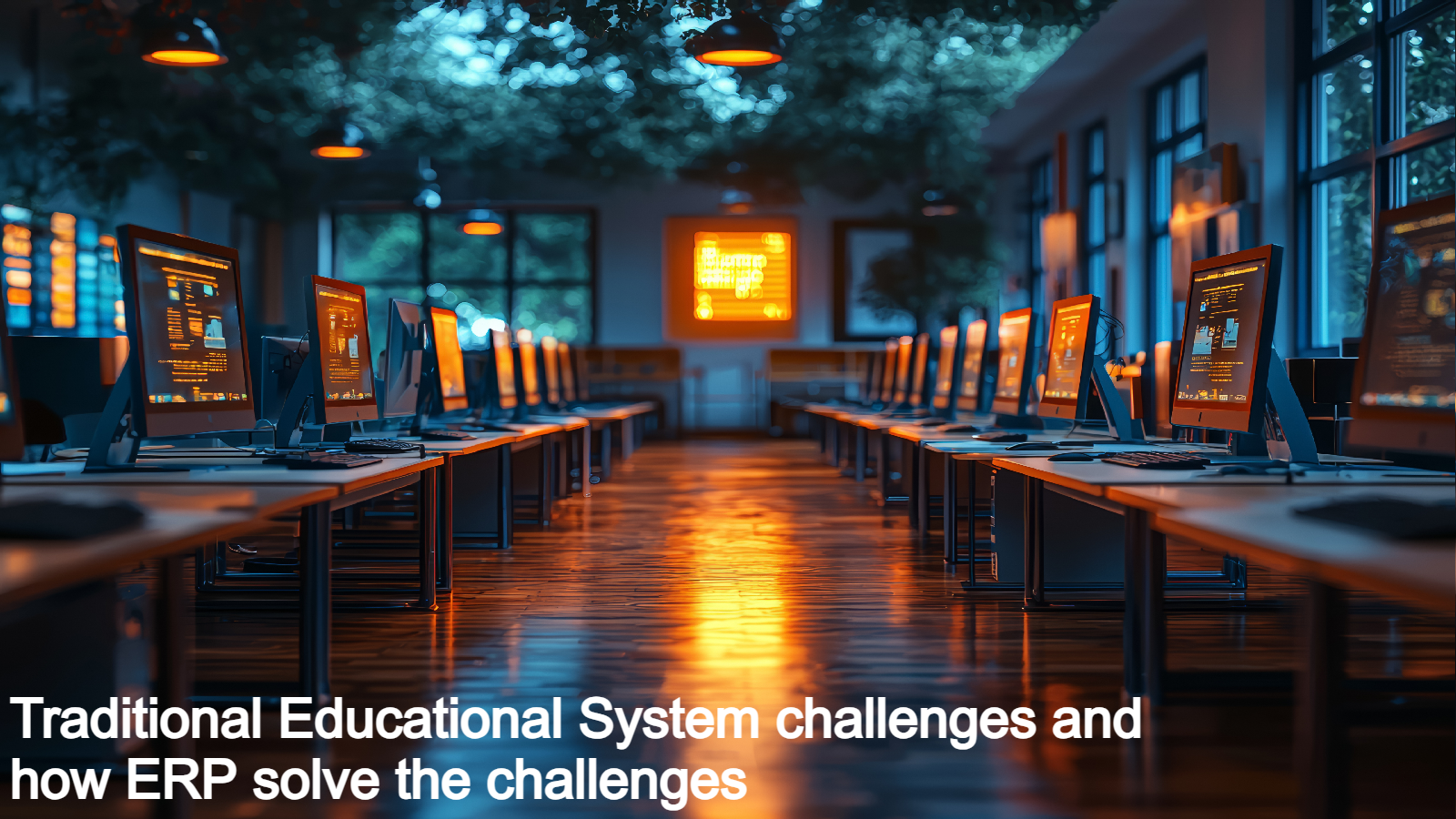Introduction
The retail industry is highly competitive. Therefore, staying ahead of the curve is a top priority. Enterprise Resource Planning (ERP) systems play a pivotal role in streamlining operations, enhancing efficiency, and fostering growth. However, like any technology, the implementation of ERP in the retail sector comes with its set of challenges.
In this blog post, we will delve into some of these challenges and explore effective strategies for resolution.
Understanding the Landscape
Before we embark on addressing the challenges, let’s establish a clear understanding of what Retail ERP is. Essentially, Retail ERP is a comprehensive software solution that integrates various business processes such as inventory management, order processing, customer relationship management (CRM), and financials into a unified platform. This integration is designed to enhance data accuracy, facilitate decision-making, and optimize overall business performance.
The Challenges in Retail ERP
Integration Complexities
One of the primary challenges in implementing Retail ERP is integrating the system seamlessly with existing technologies. Many retailers operate on a patchwork of legacy systems that have grown naturally over the years. This diversity can lead to complications during integration, resulting in data silos and inefficient communication between different departments.
According to a survey by a leading technology research firm, 60% of retailers cite integration complexities as a significant hurdle in ERP implementation.
Data Security Concerns
With the increasing frequency of cyber threats, ensuring the security of sensitive customer data is a paramount concern for retailers. ERP systems, which centralize vast amounts of critical information, become great targets for cybercriminals.
Research indicates that the retail industry suffered the second-highest number of data breaches globally in recent years, accounting for 22% of all reported incidents.
User Adoption Challenges
The success of any ERP system relies heavily on user adoption. Resistance to change and inadequate training can impede the effective utilization of the new system by employees, leading to underwhelming results.
Studies show that 46% of ERP projects face challenges related to user adoption, affecting overall project success.
Customization Dilemmas: Each retail business is unique, and a one-size-fits-all approach might not align with specific organizational needs. Customizing ERP solutions to cater to these unique requirements can be a double-edged sword, as excessive customization may lead to increased costs and potential difficulties in future upgrades.
A survey conducted among retail executives found that 78% believe striking the right balance between customization and standardization is a significant challenge in ERP implementation.
Resolving the Challenges in Retail Enterprise Resource Planning
Strategic Planning and Communication
Before diving into ERP implementation, retailers should conduct a thorough analysis of their existing systems and form a plan for integration. Clear communication across all departments is crucial to ensure a smooth transition.
Investment in Cybersecurity
Given the rising threats to data security, allocating resources to robust cybersecurity measures is essential. This includes encryption protocols, regular security audits, and employee training to enhance awareness of potential risks.
Comprehensive Training Programs
To tackle user adoption challenges, retailers should invest in comprehensive training programs. Ensuring that employees are not only familiar with the new system but also understand its benefits can significantly improve user adoption rates.
Balanced Customization
Striking the right balance between customization and standardization requires a nuanced approach. Retailers should prioritize essential customizations that align with their unique business processes while avoiding unnecessary complexities that may hinder future scalability.
Conclusion
In the ever-evolving landscape of retail, embracing technology is not an option but a necessity for survival. While challenges in Retail ERP implementation are inevitable, a strategic approach can pave the way for success. By addressing integration complexities, fortifying data security, promoting user adoption, and navigating customization dilemmas, retailers can unlock the full potential of ERP systems, driving efficiency, and fostering sustained growth in the competitive retail landscape.
FAQs on Retail Enterprise Resource Planning (ERP) Challenges and Solutions
What is Retail ERP, and why is it essential for the retail industry?
Retail ERP, or Retail Enterprise Resource Planning, is a comprehensive software solution that integrates various business processes within the retail sector, such as inventory management, order processing, customer relationship management (CRM), and financials. Retailers need to enhance operational efficiency, streamline processes, and make informed decisions based on centralized data.
What are the primary challenges in implementing Retail ERP?
The primary challenges in implementing Retail ERP include integration complexities with existing systems, data security concerns, user adoption challenges, and dilemmas related to customization. These challenges can impact the seamless functioning of the ERP system and hinder its effectiveness.
How common are integration complexities in Retail ERP implementation?
Integration complexities are quite common in Retail ERP implementation. According to a survey conducted by a leading technology research firm, 60% of retailers consider integration challenges as a significant hurdle in adopting ERP systems.
What steps can retailers take to address integration complexities during ERP implementation?
Retailers can address integration complexities by conducting a thorough analysis of existing systems before implementation, formulating a strategic plan for integration, and ensuring clear communication across all departments. This proactive approach helps in minimizing disruptions during the transition.
Why is data security a concern in Retail ERP implementation?
With the increasing frequency of cyber threats, Retail ERP systems become attractive targets for cybercriminals due to the centralized storage of vast amounts of sensitive customer data. Protecting this data is crucial to maintaining customer trust and complying with data protection regulations.
How prevalent are data breaches in the retail industry, and what is the impact?
Data breaches are a significant concern in the retail industry, accounting for 22% of all reported incidents globally. The impact includes financial losses, damage to the brand’s reputation, and potential legal consequences for failing to safeguard customer information.
How can retailers ensure data security during ERP implementation?
Retailers can ensure data security during ERP implementation by investing in robust cybersecurity measures. This includes implementing encryption protocols, conducting regular security audits, and providing comprehensive employee training to enhance awareness of potential risks and best practices.
Why is user adoption crucial for the success of Retail ERP implementation?
The success of Retail ERP systems heavily relies on user adoption. If employees resist the new system or lack adequate training, it can lead to underwhelming results and hinder the realization of the system’s full potential in enhancing operational efficiency and decision-making.
What percentage of ERP projects face challenges related to user adoption?
Studies indicate that 46% of ERP projects face challenges related to user adoption. This emphasizes the importance of investing in comprehensive training programs to ensure that employees are not only familiar with the new system but also understand its benefits.
How can retailers strike the right balance between customization and standardization in ERP implementation?
Retailers can strike the right balance by prioritizing essential customizations that align with their unique business processes while avoiding unnecessary complexities. This approach ensures that the ERP system meets specific organizational needs without hindering future scalability and upgrades.








